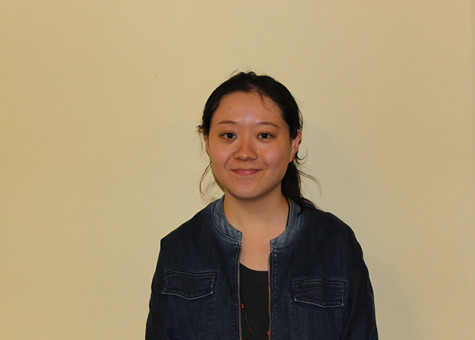Red bracelet conveys more than words
March 1, 2017
She asked attendees to guess her age in Mandarin Chinese, as she showed them a thin, red rope-like bracelet on her wrist.
Haihui Zhang, Pitt-Oakland’s East Asian Library’s director, spoke in front of approximately 40 Chinese students and a South Korean student Feb. 15 in Biddle Hall.
Wearing something red is a Chinese tradition for those during their years of fate.
Zhang said her Chinese zodiac sign is a rooster, which coincides with the current year – 2017 is also a year of the rooster in the Chinese Zodiac. Therefore, it is her year of fate.
The Chinese zodiac is a 12-year cycle of animals based on the Chinese calendar.
Zhang spoke mostly in Mandarin Chinese during the session, which she apologized for to the attendees who do not speak the language.
Owen Library Director Eve Wider, who invited Zhang to Pitt-Johnstown to speak, attended the session.
Wider said, having heard Zhang talking about her niece – a college student who had lived with Zhang for two years as an international student – Wider decided to have Zhang share her experiences with Pitt-Johnstown Chinese students.
Wider also said Pitt-Johnstown’s smaller campus gives students opportunities to connect to other students – an advantage that Pitt-Oakland does not have.
“I encourage people to take it (the opportunity to connect).”
Among the attendees were English literature instructor Tuangtip Klinbubpa-Neff – who is known as Noon by most students, English composition instructor Kimberly Douglas and Interim International Program Director Kristen Majocha.
Klinbubpa-Neff said she has four Chinese students in her classes this semester, and they are all performing well academically.
“They’ve been very cool in my class.
“When you (Chinese students) branch out to a class full of American students, they appreciate your talent.”
Zhang said she came to study in the United States in 1990. With only two pieces of luggage upon arriving, she had to work part-time jobs to cover her expenses while studying.
“Every Chinese student at the time was like that,” she said.
Her first job was cleaning a basketball court at 6 a.m., which was followed by an 8 a.m. class, Zhang said.
Health insurance, Social Security, job prospects, finance, academics, food and language were all topics jammed into the less-than-two-hour session.
Yiwen Lou, a freshman psychology major, asked Zhang how to find internships related to her major, which Zhang said was an area she is unfamiliar with.
Since last semester, Pitt-Johnstown Chinese students have had more exclusive arrangements, whether by their own choices or by university administrators’ choices.
Most Chinese freshmen have been living in Maple Hall since last semester’s start.
Student Affairs Vice President Shawn Brooks said many international students selected a 24-hour quiet floor option in Maple.
“It is important to note that there are domestic students who live on that floors as well.”
Majocha said she is still learning about Chinese culture after having helped Chinese students for five years.
“Cultural barriers take years to understand.”

